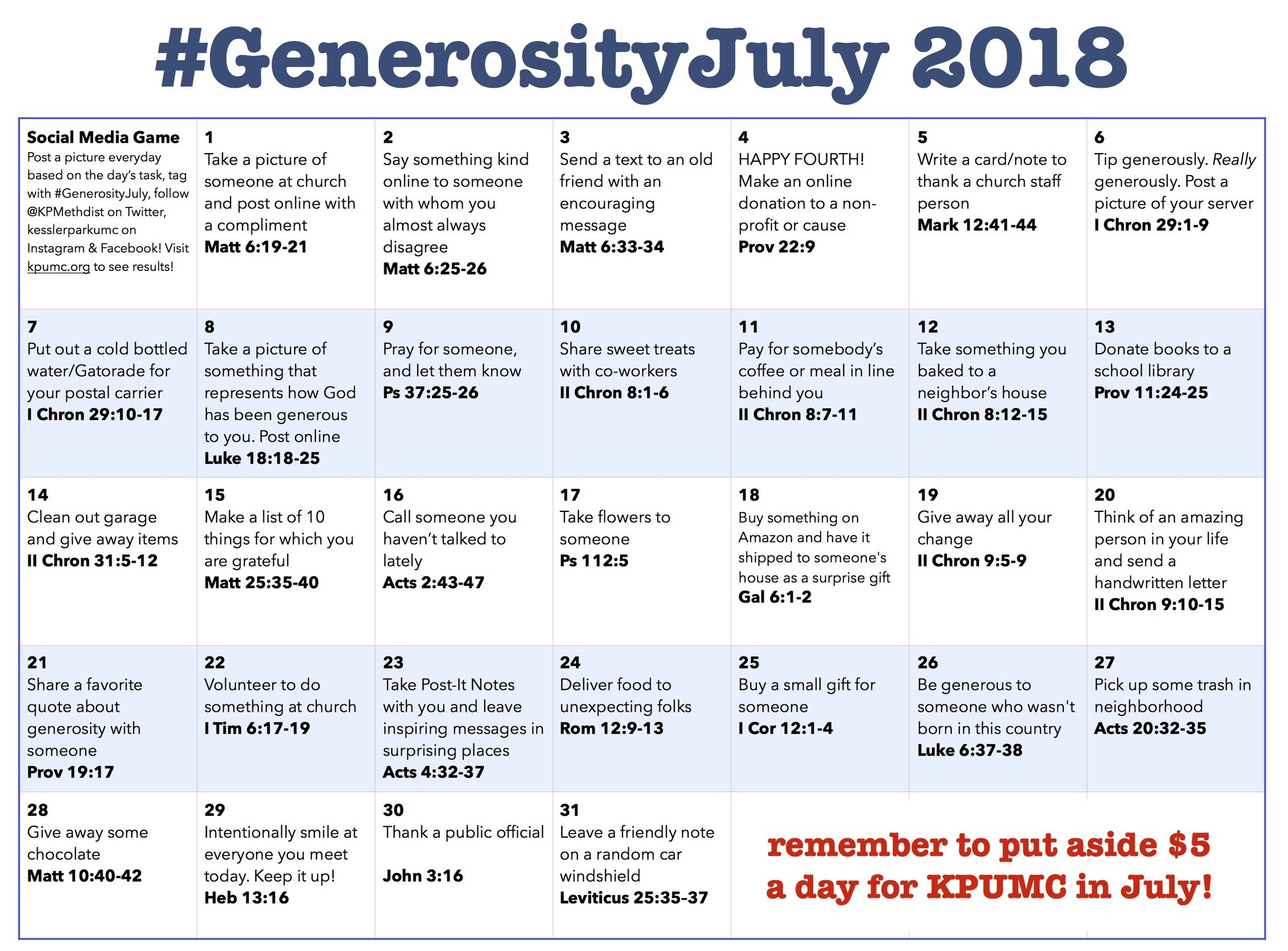What Churches Can Learn From Dying Newspapers
/I’ve finally done something I was determined not to do, something that sounded so outrageous as to be almost blasphemous. I thought I would never change my principles, but everything came crashing down in my world a few weeks ago —
I cancelled my subscription to the Dallas Morning News.
Before you pick up that stone, please give me a chance to explain myself. I am a child of print journalism. I helped start the newspaper at Allen High School years ago, then I worked summers at the local rag, Allen American. For a period during college, I was the sports editor for that twice-weekly publication.
I chose to study broadcast journalism in college, which eventually morphed into an interest in film production, but I have never lost my appreciation and passion for the newspaper. In fact, during seminary, I was a regular contributor to the DMN’s Religion section, which was a weekly section of 6-8 pages once upon a time.
Furthermore, I, too, am someone who likes to read the paper in the morning with a cup of coffee. But those days are long gone. Lately, I’m lucky if it takes me half a cup of joe to get through the whole thing. Face it — the paper is pretty thin these days.
It started a good number of years ago, when I began to notice that many of the stories on the front page were written by the legendary reporter, “From Wire Reports.” Less and less of the copy was written by people with names who live and work in Dallas.
Then I started to recognize much of the paper’s content because I had read it the day before, online from another source! For the first time, the day’s paper started to feel like old news.
Not to mention the fact that I found the DMN to have far too little coverage of film, TV and music, and far too many recipes, gardening tips, and health-related info-ads. Unfortunately, I’ve never been interested in the comics page either.
Still, I held on. For one thing, the DMN was the best place to get local news, though maybe not as incisive and investigative as Jim Schutze and the Dallas Observer folks. And you couldn’t beat the Sports page either, unless you listened to The Ticket or The Fan, or kept up with any number of sports blogs or online sites.
The last straw came a few weeks ago, when the paper slashed its staff — again — and then promptly trimmed a few more pages from their daily product — again! The editorial and opinion section, which held down the last two inside pages of the front section, was reduced to one measly page. The only entertainment writer I liked (Chris Vognar) was sent packing, and so was sportswriter Eddie Sefko.
And I decided I was done.
This is not a proud moment for me, but the Morning News has done nothing to keep me around. I would like to support local print journalism, which I think plays a vital role in keeping government accountable, citizens engaged, and communities united. But sadly the paper no longer does those things well.
Print journalism can blame the internet or television or social media, but the truth is that certain journalism outlets have thrived in the new environment. They have adjusted with the times, and adapted to new mediums, new subscription models, and new ways of attracting talent.
I’m just sad that the Dallas Morning News has not been one of them. I still want great journalism, but I get it elsewhere now. That’s the way capitalism works — for better or for worse.
Now, let me challenge you to switch mental gears. Just as there are lots of people now canceling their subscriptions to printed newspapers, there are even more people out there who are no longer going to church. The reasons are similar.
They may have grown up going to church, and appreciating church, and having rich experiences with church. But over time, they noticed that the church was no longer meeting their spiritual and social needs. They wanted to support their local churches, which they think should play a vital role in fostering encounters with God, explaining and interpreting the Bible, and building fellowship. But sadly they have come to the conclusion that the church no longer does those things well.
Over time, people began to sense that there were more authentic ways to experience God, interact with Scripture, and enjoy Christian community. As the modern millennial might put it, “I still want spirituality, but I get Jesus elsewhere now.”
Churches can blame the internet or television or social media, but the truth is that certain congregations have thrived in the new environment. They have adjusted with the times, and adapted to new mediums, new models of ministry, and new ways of paying the bills.
As the special General Conference in St. Louis nears, the question looms large before us: Will the United Methodist Church go the way of the Dallas Morning News and print journalism, or will it find ways to thrive in the new world?
What about Kessler Park UMC?




